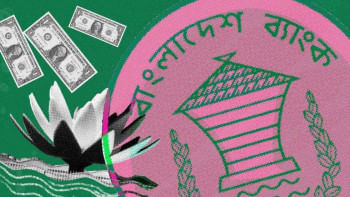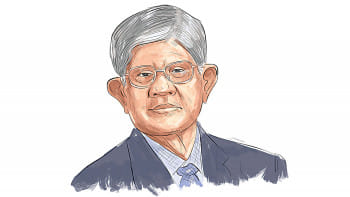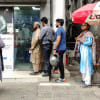Banking sector reform: where and how?

We have been talking about banking sector reforms since long as our banking sector is plagued with insider lending, bad loans, low capitalisation and risk coverage, weak governance, sub-optimal automation, a lack of expert manpower and non-availability of better products to serve the emerging clients and cater their shifting demands.
Since the fall of the last regime, there have been several chaotic incidents in the banking sector—from the resignation of Bangladesh Bank (BB) governor and other top officials to the conflicts between rival groups at various banks, including Islami Bank—which send out an alarming signal.
These incidents are nothing but an indication about how quickly a sector, long lying on the edge of the precipice, can unravel when push comes to shove.
The leading vernacular daily the Prothom Alo and many other media as well as civil society forum, including expert groups from the development partners, at frequent intervals shed light on what led to the dismal state of this sector.
They talked about the BB's questionable steps taken during the erstwhile government to keep several almost failing banks afloat by providing liquidity support without collateral; alleged unethical connections of the BB governor and deputy governors with top loan defaulters; and the change of ownership forced on several banks even at the late hours including the Islami Bank, creating an environment of mistrust.
Moreover, the BB's choice of lending foreign currency loans from the reserve to various influential businesses through the Export Development Fund (EDF), without proper evaluation, also resulted in many classified loans.
I can't believe 20 local businesses currently owe BB about $70 million taken out of the foreign currency reserve.
The default loan amount of Tk 1.822 trillion itself is also under scrutiny. Experts estimate that the actual figure would be close to Tk 4 trillion if not more, considering rescheduled and bad/written-off loans and those currently under legal dispute as well as with doubtful security and collateral backing.
Meanwhile, depositors of the known to be weak banks, many of which were forced to change ownership, having tough time to withdraw their savings. Yet, the owners of the banks are taking out loans under different names.
While some of these irregularities were mentioned in the BB's own reports, several central bank officials alleged that many such activities have remained out of BB's and Bangladesh Financial Intelligence Unit's regulatory radar. This raises serious questions about the responsibility and ethics of top officials of not just the central bank but also the governing bodies of several private and public commercial banks.
There is no doubt that political appointments in the banking sector, incorrect or manipulative accounting practices, nepotism, weak due diligence and the lack of transparency in the lending process brought the sector to its current state.
New Governor has been appointed with good visibility re: the destination. Few deputy governors are also being reportedly recruited. Finance adviser himself is a former governor. Once they settle down well in their new roles, it is therefore, imperative that the interim government urgently launches an investigation to find out the actual amount of default loans, identify and bring to book the big defaulters along with officials who aided these questionable borrowings.
Like many other similar countries, the government must prioritise depositors' interests and prevent any further withdrawal of money by the unholy nexus or individuals close to the big offices, borrowers, and defaulters that are bleeding the sector dry.
Use of the political clout through sub-servient or susceptible to pressure officials must stop.
Though we must allow the government to clean the dust on the carpet first, an attempt to run a deep-dive and well-thought banking sector reform in keeping with ever evolving market scenario and globalisation warrants should also start soon. Otherwise, we can't make our banking sector inclusive and on the similar pace with other competing countries.
The writer is the chairman of Financial Excellence Ltd

 For all latest news, follow The Daily Star's Google News channel.
For all latest news, follow The Daily Star's Google News channel. 










Comments